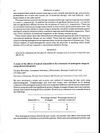 22 citations,
October 2012 in “Journal of Investigative Dermatology”
22 citations,
October 2012 in “Journal of Investigative Dermatology” Altered retinoid metabolism in cicatricial alopecia suggests a balanced vitamin A diet may prevent the condition.
 21 citations,
September 2001 in “Graefes Archive for Clinical and Experimental Ophthalmology”
21 citations,
September 2001 in “Graefes Archive for Clinical and Experimental Ophthalmology” Minoxidil may help prevent capsular opacification after cataract surgery.
 21 citations,
October 1978 in “The Journal of Clinical Pharmacology”
21 citations,
October 1978 in “The Journal of Clinical Pharmacology”  20 citations,
May 1985 in “British journal of nutrition”
20 citations,
May 1985 in “British journal of nutrition” Dietary essential fatty acids improved skin and hair conditions and partially corrected fat composition in diabetic mice.
 16 citations,
May 1982 in “Postgraduate Medical Journal”
16 citations,
May 1982 in “Postgraduate Medical Journal” Minoxidil can cause pericardial and pleural effusions with high protein content.
 15 citations,
January 2019 in “Journal of the Formosan Medical Association”
15 citations,
January 2019 in “Journal of the Formosan Medical Association” Adalimumab helped control a child's severe eye disease when other treatments failed.
 4 citations,
December 2022 in “Frontiers in cell and developmental biology”
4 citations,
December 2022 in “Frontiers in cell and developmental biology” Zebrafish larvae are used to study and find treatments for ear cell damage because they are easier to observe and test than mammals.
 4 citations,
April 2020 in “bioRxiv (Cold Spring Harbor Laboratory)”
4 citations,
April 2020 in “bioRxiv (Cold Spring Harbor Laboratory)” The skin has about 230,000 touch-sensitive nerve fibers, with high concentrations in the hands and face.
 4 citations,
September 2013 in “Journal of Plastic Surgery and Hand Surgery”
4 citations,
September 2013 in “Journal of Plastic Surgery and Hand Surgery” A girl with a rare syndrome had successful hair loss treatment with no relapse after 4 years.
 2 citations,
January 2022 in “Skin research and technology”
2 citations,
January 2022 in “Skin research and technology” OCT can detect hidden hair follicles in alopecia areata, indicating potential hair regrowth.
 2 citations,
December 2018 in “Journal of cosmetic dermatology”
2 citations,
December 2018 in “Journal of cosmetic dermatology” Higher CRBP1 levels are linked to more severe alopecia areata.
 April 2018 in “Journal of Investigative Dermatology”
April 2018 in “Journal of Investigative Dermatology” Researchers found a substance in chicken egg yolk that helps hair grow.
 April 2018 in “Journal of Investigative Dermatology”
April 2018 in “Journal of Investigative Dermatology” STIM1 is essential for sweat secretion.
 April 2018 in “Journal of Investigative Dermatology”
April 2018 in “Journal of Investigative Dermatology” The keratin network in mouse skin changes during cornification and affects the skin's protective barrier.
 April 2018 in “Journal of Investigative Dermatology”
April 2018 in “Journal of Investigative Dermatology” People with alopecia areata have higher levels of a heart disease marker in their blood.
 April 2018 in “Journal of Investigative Dermatology”
April 2018 in “Journal of Investigative Dermatology” Sensitive scalp has higher pH, more redness, abnormal sebum, and altered bacterial makeup.
 January 2017 in “Clinical approaches and procedures in cosmetic dermatology”
January 2017 in “Clinical approaches and procedures in cosmetic dermatology” Retinoids are effective for skin conditions like severe acne and psoriasis but must be used with caution due to potential side effects and risks during pregnancy.
 January 2016 in “Springer eBooks”
January 2016 in “Springer eBooks” Understanding drug interactions, side effects, and patient-specific factors is crucial for effective dermatological care.

Newer retinoid drugs are effective for skin conditions but have significant side effects.
 July 1989 in “British Journal of Dermatology”
July 1989 in “British Journal of Dermatology” Minoxidil helps increase hair growth and density in people with hair loss, with higher concentrations giving better results.
 1341 citations,
January 2014 in “Cardiology Research and Practice”
1341 citations,
January 2014 in “Cardiology Research and Practice” Managing metabolic syndrome needs both lifestyle changes and medical treatments.
 1265 citations,
October 2013 in “The Journal of Clinical Endocrinology and Metabolism”
1265 citations,
October 2013 in “The Journal of Clinical Endocrinology and Metabolism” The guideline suggests using specific criteria to diagnose PCOS, recommends various treatments for its symptoms, and advises screening for related health issues.
 499 citations,
September 2011 in “Cell”
499 citations,
September 2011 in “Cell” Fat-related cells are important for initiating hair growth.
 480 citations,
August 2014 in “Nature Biotechnology”
480 citations,
August 2014 in “Nature Biotechnology” Changing the environment around stem cells could help tissue repair, but it's hard to be precise and avoid side effects.
 411 citations,
April 2010 in “Gastroenterology”
411 citations,
April 2010 in “Gastroenterology” Targeting colon cancer stem cells might lead to better treatment results.
 320 citations,
December 2018 in “Frontiers in Immunology”
320 citations,
December 2018 in “Frontiers in Immunology” Changing how mesenchymal stromal cells are grown can improve their healing abilities.
 293 citations,
November 2011 in “Nature”
293 citations,
November 2011 in “Nature” The circadian clock affects skin stem cell behavior, impacting aging and cancer risk.
 284 citations,
November 1999 in “Neurology”
284 citations,
November 1999 in “Neurology” The article suggests managing interferon beta therapy side effects in MS with dose adjustments, medications, and patient education.
 271 citations,
September 2008 in “Nutrition reviews”
271 citations,
September 2008 in “Nutrition reviews” Vitamin D receptor interacts with certain dietary components to help prevent diseases and regulate hair growth.
 252 citations,
January 2008 in “Trends in Endocrinology and Metabolism”
252 citations,
January 2008 in “Trends in Endocrinology and Metabolism” Melatonin in the skin helps protect against damage from stress and UV rays, and could be used to treat certain skin conditions.






























